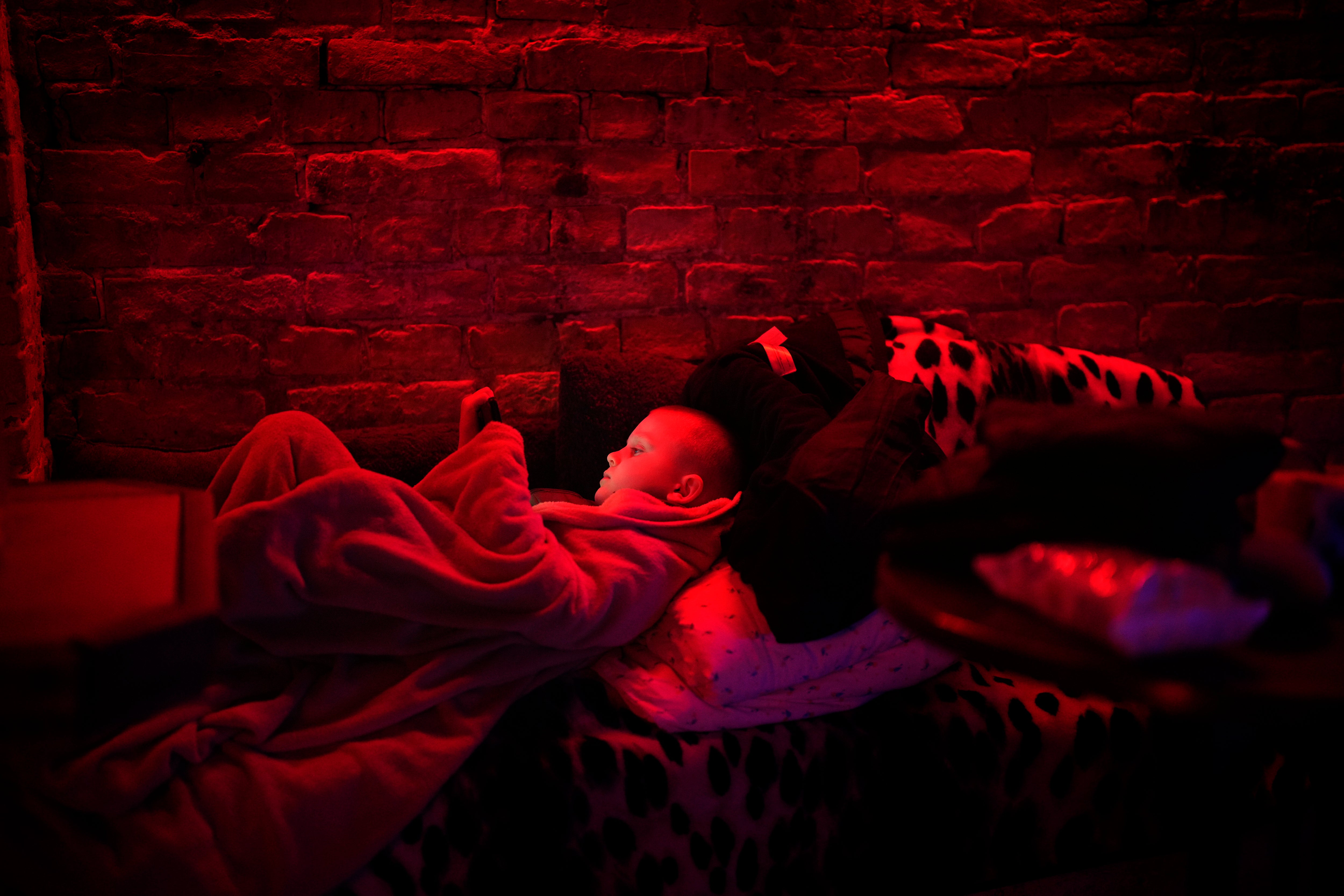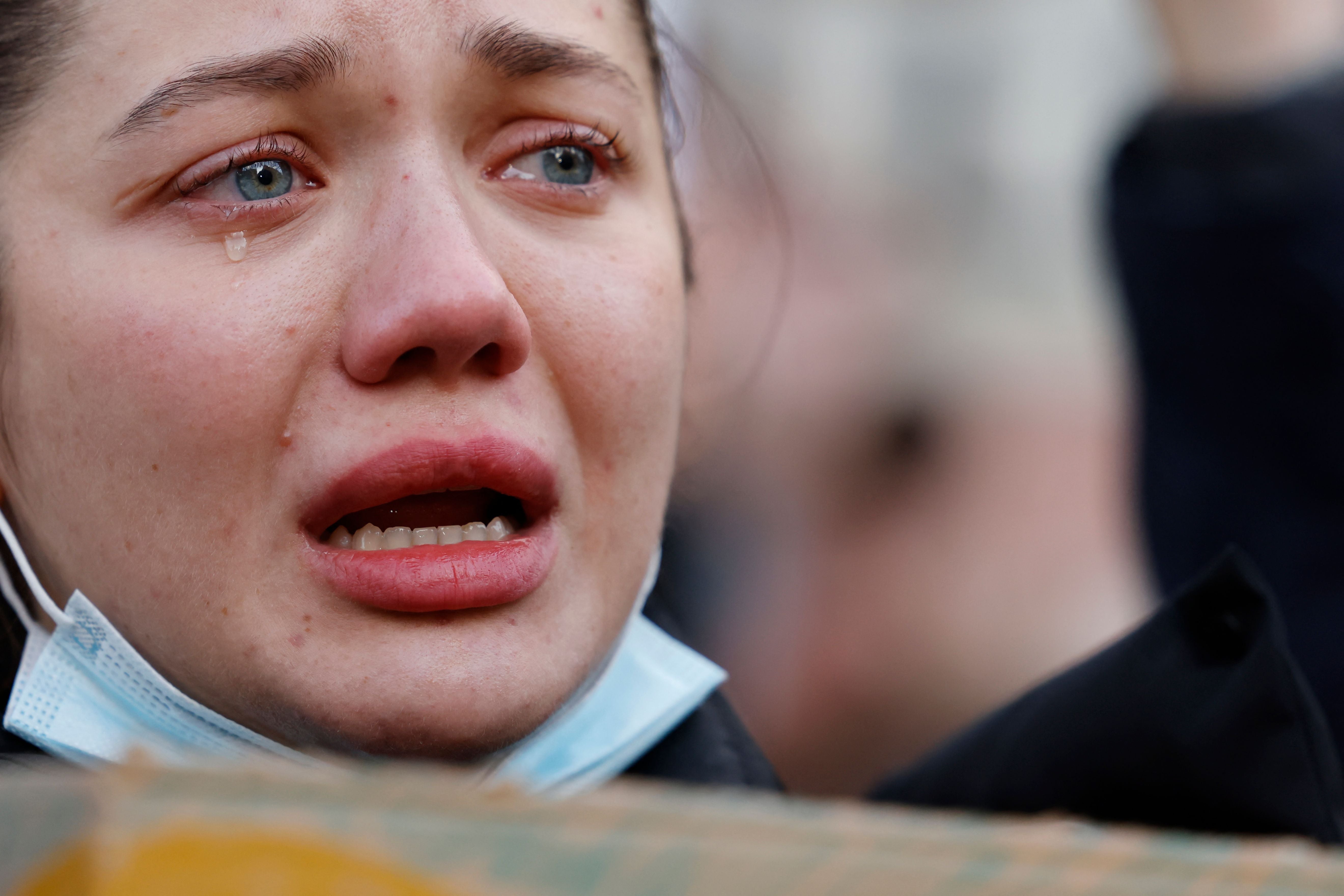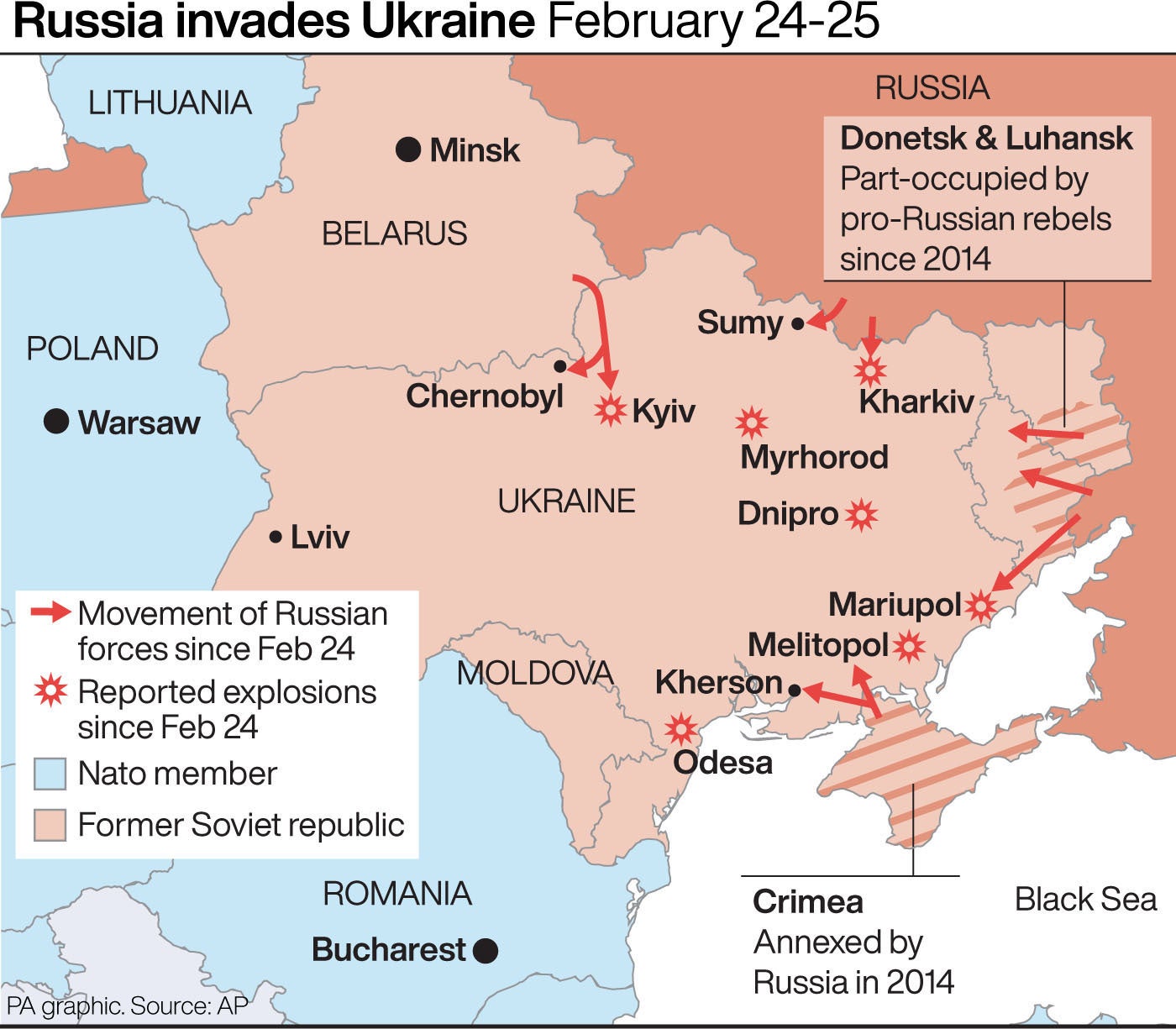Explosions heard in Kyiv as Russian forces surround Ukraine capital
Ukraine’s leaders vow to fight on as world hits President Putin with more sanctions
Your support helps us to tell the story
From reproductive rights to climate change to Big Tech, The Independent is on the ground when the story is developing. Whether it's investigating the financials of Elon Musk's pro-Trump PAC or producing our latest documentary, 'The A Word', which shines a light on the American women fighting for reproductive rights, we know how important it is to parse out the facts from the messaging.
At such a critical moment in US history, we need reporters on the ground. Your donation allows us to keep sending journalists to speak to both sides of the story.
The Independent is trusted by Americans across the entire political spectrum. And unlike many other quality news outlets, we choose not to lock Americans out of our reporting and analysis with paywalls. We believe quality journalism should be available to everyone, paid for by those who can afford it.
Your support makes all the difference.Russian troops surrounded Kyiv on three sides on Friday night as Ukrainians pledged to defend their capital city, amid fears the battle could involve intense gunfights in streets, heavy casualties and potentially far-reaching consequences that escalate the worst crisis Europe has seen for decades still further.
Loud explosions were heard across Kyiv as invading soldiers advanced through its outskirts, with Ukrainian fighters positioned in key defensive points across the city. Residents scurried, for a third successive night, to the safety of underground shelters, as air raid warnings echoed across the capital.
As they did so, Russia’s president Vladimir Putin called on the Ukrainian military to seize power and overthrow the government of Volodymyr Zelensky.
“It seems like it will be easier for us to agree with you than this gang of drug addicts and neo-Nazis,” Mr Putin thundered in a statement on Friday night, once again attempting to depict the Ukrainian leadership as far-right in nature and justify his invasion, largely criticised across the world.
Shelling pummelled apartment buildings, bridges, schools and strategic military sites in and around Kyiv throughout the past 24 hours. Under the fog of war, it is not clear how many lives have been lost across the country, with other cities also under siege, though British ministers believe 450 Russian soldiers and 194 Ukrainians, including 57 civilians, have been killed since Moscow’s invasion was launched on Thursday.
“When bombs fall on Kyiv, it happens in Europe, not just in Ukraine,” Mr Zelensky said, pleading for Western assistance. “When missiles kill our people, they kill all Europeans.”
Nato has agreed to send more soldiers from the organisation's Response Force to help protect allies in the east of Europe. Secretary general Jens Stoltenberg did not say how many troops would be deployed, but confirmed that the move would involve land, sea and air power.
He also committed to deliver additional weapons, including air defences, to Ukraine, saying that Moscow was attempting to topple the Kyiv government. “We see rhetoric, the messages, which is strongly indicating that the aim is to remove the democratically elected government in Kyiv,” Mr Stoltenberg said.

The intensifying crisis has precipitated a dire humanitarian crisis, with thousands of Ukrainians forced to flee and seek refuge across the country’s western borders. Some 100,000 people are estimated to have taken flight, according to the UN. Many have headed to the Polish border, leaving behind their homes and lives in Kiev, Kharkiv, Mariupol and elsewhere.
As Russian forces encircled Kyiv, home to 2.8 million people, the Kremlin indicated that it is ready to hold talks with Ukraine about “demilitarisation” and declaring a “neutral status,” thereby preventing the country from joining Nato.
Moscow also warned of “serious military and political repercussions” for Finland and Sweden should they attempt to join the organisation - threats that were quickly knocked by the European Union - in a worrying sign that the Ukrainian conflict could spill out beyond the country’s borders.
The EU, along with the UK, said it would be freezing European assets directly held by the Russian president and his long-time foreign minister Sergei Lavrov. In a meeting of Nato leaders, British prime minister Boris Johnson called for “immediate action” over the banning of Russia from the Swift payment system to “inflict maximum pain” on the Kremlin.
Mr Johnson said the invasion must fail and that a “catastrophe was engulfing Ukraine”.
In Kiev, local residents have been urged to fight back and “neutralise the enemy” with Molotov cocktails against the encroaching troops. Instructions of how to make the petrol bombs have been circulated on the Interior Ministry’s social media.

Elsewhere in the capital, soldiers established defensive positions at bridges, and armoured vehicles rolled down the streets, while many residents stood uneasily in doorways of their apartment buildings.
Some 18,000 machine guns have also been handed out to “all those who want to defend our capital with weapons in their arms,” according to government adviser Vadym Denysenko.
The strategic Hostomel airfield, to the north of the city, has also been recaptured by Russian soldiers, at a loss of 200 Ukrainian lives, according to the Kremlin.
Tetyana Filevska, a resident of the city and deputy director of the Ukrainian Institute, told The Independent: “We urgently need all the help to our army, people and country. We need guns and equipment, medicines, economic aid - but most of all we need solidarity in fighting Russia.
“We are keeping Europe safe, you all have to understand this. Putin won’t stop on Ukraine. He will go further.”
Alongside Kyiv, multiple other Ukrainian cities are under attack by Russian forces. The Kremlin’s defence ministry says its troops had surrounded the city of Chernihiv, which is about 150 km north of the capital. Explosions and gunfire have also been reported in Kharkiv, close to the eastern border, and the southern port of Mariupol.

Mr Zelensky has reportedly offered to discuss a non-aligned status for his country, which the Kremlin described as “a move in a positive direction”. Spokesman Dmitry Peskov told reporters that “we paid attention to that, and now we need to analyse it”.
But Mr Lavrov, Russia’s foreign minister, said Mr Zelensky “is simply lying”, adding that the Ukrainian leader had “missed the opportunity” to discuss a neutral status for the country when Mr Putin first proposed it.
Earlier in the day - his grasp on power increasingly tenuous - Mr Zelensky appealed to global leaders for even more severe sanctions than those imposed by Western allies and for defence assistance.
“If you don’t help us now, if you fail to offer a powerful assistance to Ukraine, tomorrow the war will knock on your door,” said the leader, who cut diplomatic ties with Moscow, declared martial law and ordered a full military mobilisation that would last 90 days.
He also recorded himself in Kyiv, along with members of his cabinet, to prove he had not fled the city.
Ukraine alleged that at the Chernobyl power plant, captured by Russian forces on Thursday, 92 people had been taken hostage.

The crisis rippled elsewhere with Russia being banned from the Eurovision Song Contest and Formula One saying it would not hold a Grand Prix in the country because of the invasion, while Manchester United ended its sponsorship association with Aeroflot.
Russia banned British airlines from flying across its airspace.
In Ireland, the Russian Ambassador’s car was attacked in Dublin and protests continued across the globe against the invasion.




Join our commenting forum
Join thought-provoking conversations, follow other Independent readers and see their replies
Comments